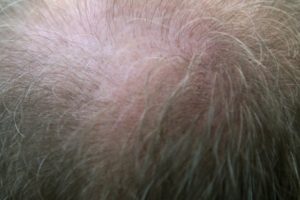
ADVERTISEMENT
Experiencing hair loss can make you feel like it’s bringing your age to the forefront. Perhaps only wrinkles rival receding hairlines in making you feel older. Genetics ranks as the most common culprit behind this phenomenon. While you can’t alter your genetic makeup, there are likely ways to improve or slow down your hair loss.
When your body lacks essential vitamins and other key substances, it can lead to hair loss, lackluster hair, or increased brittleness. Modifying your diet has the potential to help combat non-genetic causes of hair loss, which not only benefits your hair but also enhances your overall appearance and well-being. It’s a situation where everyone wins, and you might even develop a liking for the foods mentioned on this list. Keep reading!
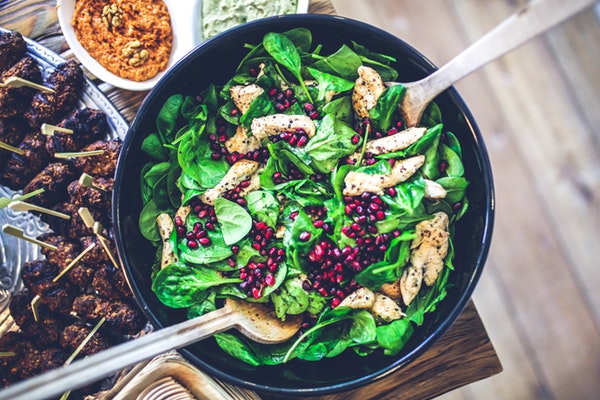
Consuming iron-rich foods may be beneficial for individuals facing iron deficiency. However, men and women experiencing menopause should refrain from immediately increasing their iron intake. It is advisable to consult a doctor to have iron levels checked before making any dietary changes.
ADVERTISEMENT
Excellent sources of iron comprise spinach, a classic favorite of Popeye. Spinach is enriched with various essential minerals and vitamins that support the health of hair follicles. Another great option to enhance iron intake is lean beef.
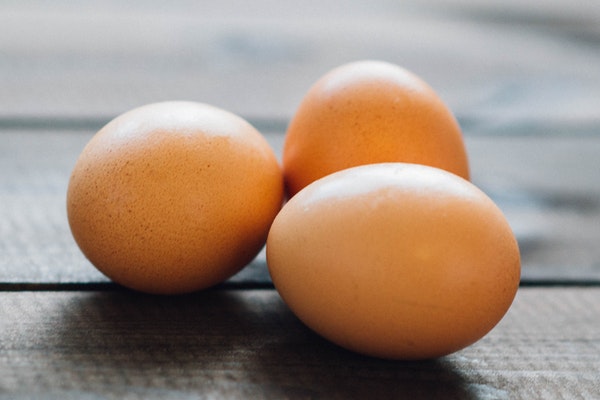
Zinc has been shown to be a valuable nutrient for the prevention and treatment of hair loss. Research indicates that individuals with hair loss tend to have reduced levels of zinc. If you’re a fan of oysters, you’re in for a treat, as they are the richest food source of zinc.
For those who are not fond of oysters, alternative sources of zinc include spinach, lean red meat, beans, and eggs. The benefit of these options is that they can diversify your diet and contribute to the intake of multiple nutrients at the same time.
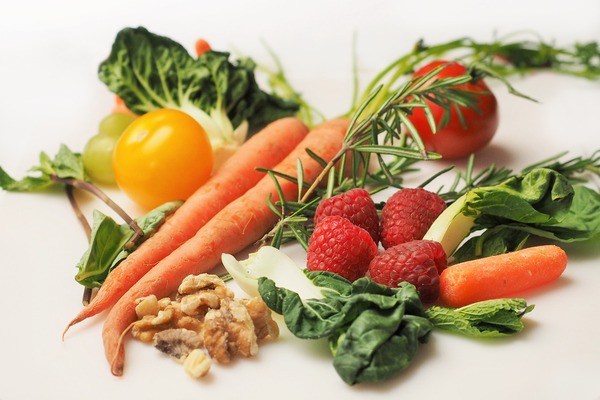
Foods abundant in vitamin A are typically packed with beta-carotenes. Nourishing your hair will also benefit your overall health. Beta-carotene contributes to improved eyesight, immunity, and offers protection against cancer.
ADVERTISEMENT
To boost your intake of beta-carotene, prioritize consuming orange-colored foods. Carrots, sweet potatoes, winter squash, and the ever-reliable spinach are all rich sources of beta-carotene.
Emphasize consuming foods in their raw state (when suitable) as the cooking process can reduce the level of beta-carotene present in the food.

Vitamin D stands out as a crucial supplement. The body naturally produces Vitamin D when exposed to sunlight. However, many individuals have limited outdoor exposure, and those who are often wear sunscreen or protective clothing. Tuna, salmon, beef liver, and egg yolks constitute rich sources of vitamin D.
ADVERTISEMENT
In addition to natural sources, milk, cereals, and orange juice are fortified with Vitamin D. It is advisable to obtain your vitamins primarily from food, if achievable.
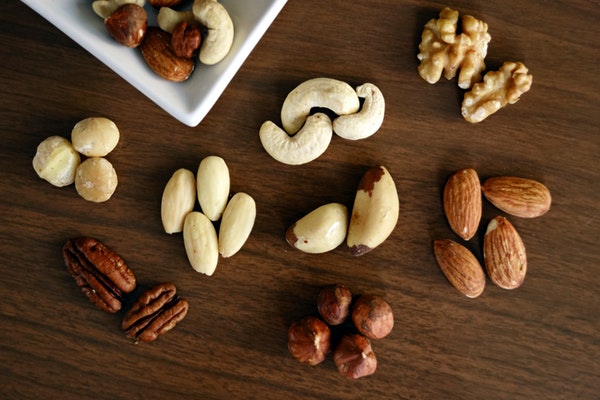
Selenium plays a crucial role in various aspects, such as hair health and immune function. While selenium deficiency is uncommon in the US, it may develop in individuals with conditions like hypothyroidism, HIV, undergoing dialysis, or having gastrointestinal disorders such as Crohn’s disease.
Incorporate six Brazil nuts into your weekly diet, but be cautious about excessive selenium intake, as overdosing can be as harmful as deficiency.
Consider including other delicious foods to enhance your diet.
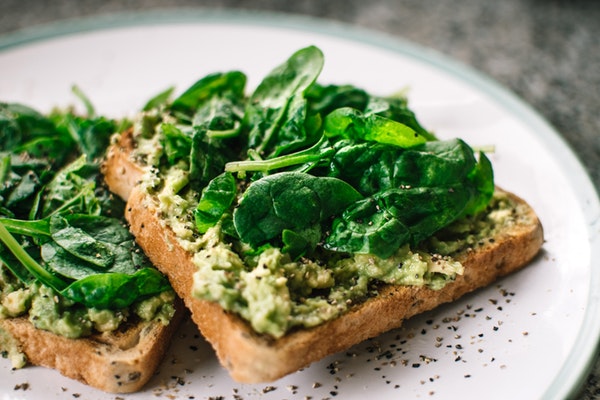
Biotin, also referred to as Vitamin B7, is an essential B vitamin that plays a crucial role in various bodily functions. If there is a deficiency in biotin, it can lead to hair loss, nerve damage, and skin issues. Foods such as eggs, sweet potatoes, and spinach are rich sources of biotin.
ADVERTISEMENT
It’s important to note that biotin can have an impact on the effectiveness of certain medications, therefore it’s recommended to consult with a healthcare professional before starting biotin supplements. Consuming foods with adequate biotin levels should not pose any issues.
Amongst the range of healthy foods for promoting good hair health, spinach stands out as a particularly beneficial option. If you’re looking for other good options, what else can you incorporate into your diet?
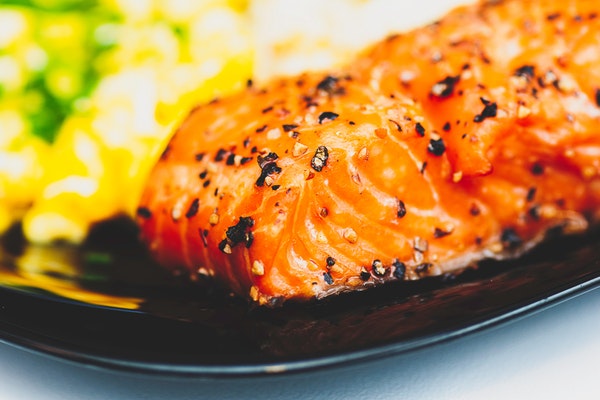
Omega-3 and -6 have been acknowledged for their positive effects on heart and brain health. There is scientific support suggesting that fatty acids play a role in preventing hair loss and promoting hair regrowth.
ADVERTISEMENT
If salmon is not your preference, incorporating nuts, seeds, and oils derived from grapeseed, sunflower, sesame, pumpkin, and coconuts into your diet can also provide the benefits of omega-3. Additionally, a study demonstrated that men who consumed 400 mg per day of pumpkin seed oil for 24 weeks experienced a remarkable 40% increase in hair growth.
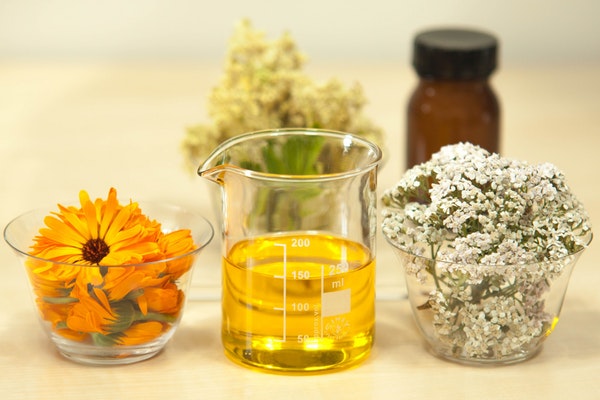
Highly concentrated and distilled, essential oils are versatile products. They can be incorporated into cooking and are effectively used as part of skincare routines. Rosemary essential oil is known for its antioxidant and anti-inflammatory properties.
Applying a few drops of rosemary essential oil to the scalp after showering may yield impressive results. Research has demonstrated its comparable efficacy to Romaine (minoxidil) without causing the uncomfortable side effect of scalp irritation. Additionally, peppermint essential oil is utilized to stimulate hair growth.
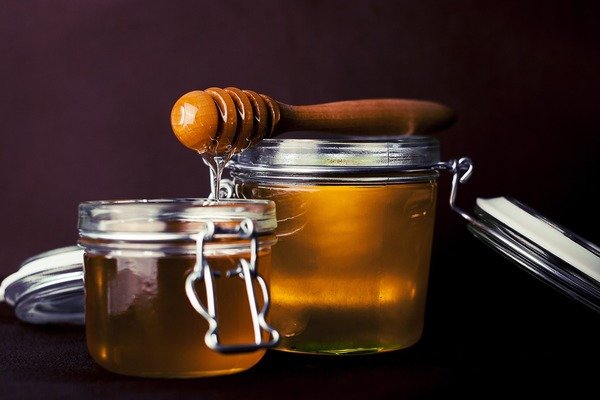
A time-tested natural remedy for promoting hair growth involves using honey, olive oil, and cinnamon. This remedy is known to provide relief for itchy scalp and scaling when applied topically.
ADVERTISEMENT
To prepare the treatment, warm half a cup of olive oil and mix in two tablespoons each of honey and cinnamon. Next, beat in an egg and apply the mixture to damp hair. Allow it to rest for 10 minutes before rinsing with shampoo. Ensure that the temperature of the oil is not too high to prevent cooking the egg. Remember, this treatment is for external use only and should not be consumed.
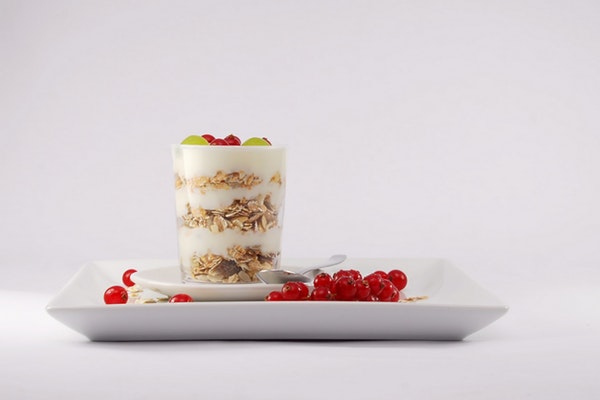
Lastly, Greek yogurt is a great option. Whether consumed or used for scalp massage, Greek yogurt is rich in beneficial vitamin B5 and vitamin D, both of which are associated with fortifying hair follicles. Additionally, it is a rich source of protein and calcium, both of which are essential for promoting healthy hair and bones. Opt for the low-fat variation to avoid consuming excess calories if consumed as food.
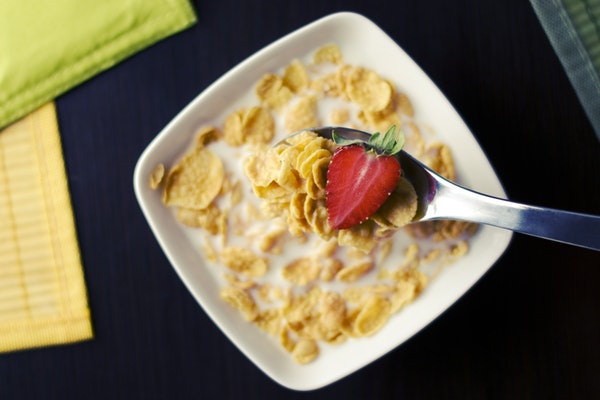
Can these foods aid in hair regrowth or preventing hair loss? Research suggests they may, with spinach proving to be particularly beneficial in various aspects. Even if you don’t experience a dramatic increase in hair volume, consuming these foods will contribute to overall health, stronger hair, and a sense of well-being.
ADVERTISEMENT
ADVERTISEMENT
Incorporating these foods into your diet carries no known downsides, so it’s worth giving them a try. You may be pleasantly surprised by the results. Consider preparing a spinach salad topped with a boiled egg and some walnuts for a delicious and nutritious meal. The potential benefits make it a great choice!
There are many very health enhancing food additives in the article which I shall reread in order to write them down one by one and their benefits…Thank You Mr. Gibson for all your CARINGS…
Interesting…thank You verry much!!
A lot of good advice Thanks
Currently using activated charcoal from coconut shells and spring water apply to scalp,was also using one of those red and blue light hat but battery went bad
Thank you for the article. It was very interesting. I eat most of the food that’s written in this article. I said salmon and Spanish along with oysters carrots
So why don’t expect to be losing a lot of here?
Interesting article I eat most of the food mention in this article the salmon spinach along with carrots
I don’t expect to be losing a lot of hair but thank you anyway thank you thank you
Thank you for your article help us yo know ..for your care to us..